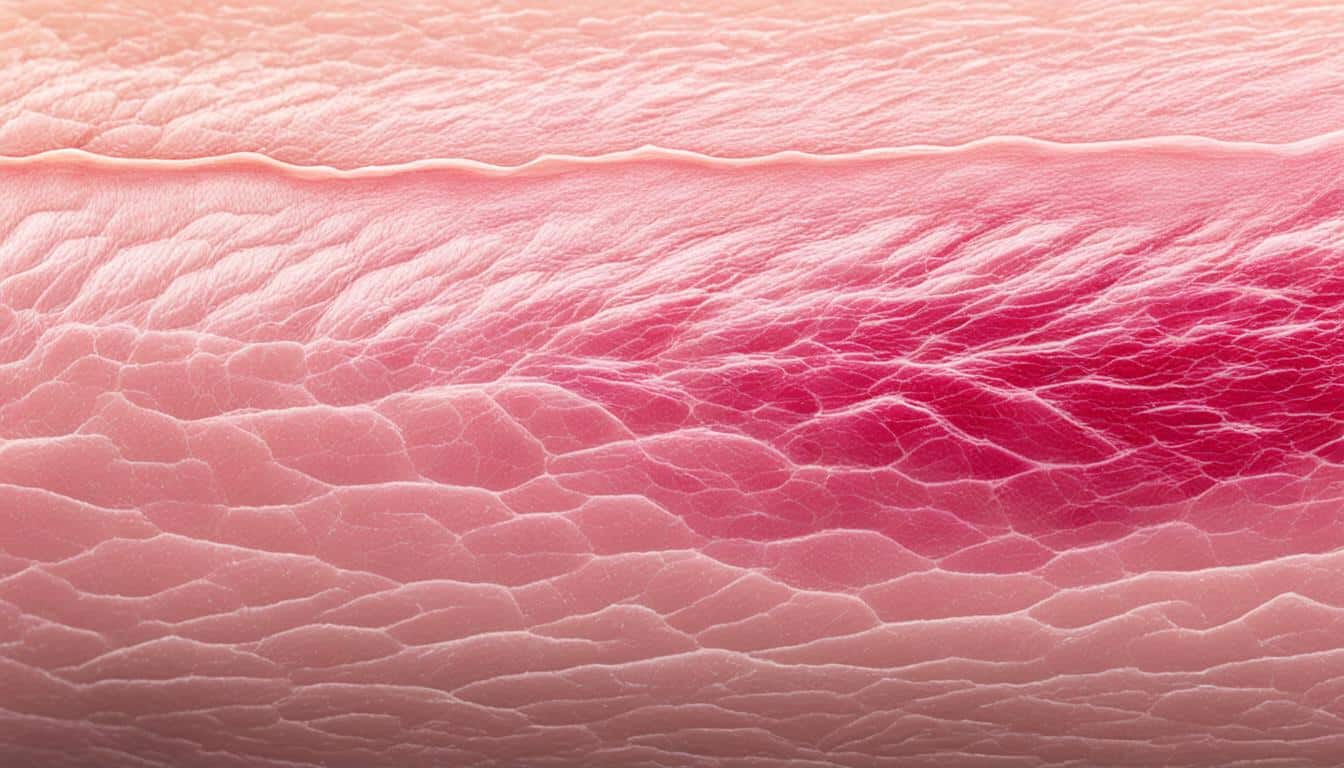Table of Contents
Triple-negative breast cancer (TNBC) is a unique and aggressive form of breast cancer that lacks the three most common types of receptors known to fuel most breast cancer growth: estrogen, progesterone, and the HER-2/neu gene. This absence makes TNBC more challenging to treat, as it doesn’t respond to hormonal therapy or drugs that target HER-2 receptors.
One lesser-known aspect of TNBC is its impact on the skin. Managing skin health and addressing related complications is crucial for patients undergoing treatment for TNBC. This comprehensive guide will delve into various aspects of TNBC skin, offering insights and practical advice for care and treatment.
What is TNBC?
Triple-negative breast cancer, commonly referred to as TNBC, is characterized by the absence of estrogen receptors (ER), progesterone receptors (PR), and HER-2/neu receptors. TNBC tends to be more aggressive, with a higher likelihood of recurrence and metastasis.
Understanding TNBC Skin Changes
Patients with TNBC often experience skin changes due to the cancer itself or as side effects of the treatments. These changes can include redness, dryness, rashes, and sensitivity. Understanding the nature of these skin changes is vital for effective management and care.
Common Skin Complications in TNBC
Skin complications in TNBC patients can arise from various treatments, including chemotherapy, radiation, and targeted therapies. Some common issues include:
- Dermatitis: Inflammation of the skin, causing redness and irritation.
- Xerosis: Severe dryness of the skin, often leading to itching and discomfort.
- Radiation Burns: Skin damage caused by radiation therapy, resulting in burns, blistering, and peeling.
- Photosensitivity: Increased sensitivity to sunlight, leading to easy sunburns.
Skin Care During Chemotherapy
Chemotherapy, a standard treatment for TNBC, can cause several skin-related side effects. Proper skin care during chemotherapy includes:
- Gentle Cleansing: Using mild, fragrance-free cleansers to avoid irritation.
- Moisturizing: Regular application of hypoallergenic moisturizers to combat dryness.
- Sun Protection: Applying broad-spectrum sunscreen with high SPF to protect against photosensitivity.
Managing Radiation-Induced Skin Changes
Radiation therapy can significantly affect the skin, leading to burns and long-term damage. Management strategies include:
- Cool Compresses: Applying cool, damp cloths to soothe burnt areas.
- Topical Steroids: Using prescribed steroid creams to reduce inflammation.
- Avoiding Irritants: Steering clear of harsh soaps, tight clothing, and other potential irritants.
Dealing with Xerosis and Itching
Xerosis, or dry skin, is a common issue for TNBC patients. Itching can accompany dryness, leading to discomfort. Effective management includes:
- Hydration: Drinking plenty of water to maintain skin hydration from within.
- Humidifiers: Using humidifiers to add moisture to the air, preventing skin from drying out.
- Oatmeal Baths: Taking oatmeal baths to soothe and hydrate the skin.
Nutrition and Skin Health
A well-balanced diet plays a crucial role in maintaining skin health, especially for TNBC patients. Key nutrients include:
- Vitamins A and C: Essential for skin repair and regeneration.
- Omega-3 Fatty Acids: Found in fish and flaxseeds, these help maintain skin moisture and reduce inflammation.
- Antioxidants: Present in fruits and vegetables, antioxidants protect the skin from damage.
Psychological Impact of Skin Changes
The psychological impact of skin changes can be profound, affecting self-esteem and mental health. Supportive care strategies include:
- Counseling: Seeking professional help to address body image concerns.
- Support Groups: Joining support groups for shared experiences and emotional support.
- Mindfulness Practices: Engaging in mindfulness and relaxation techniques to manage stress.
Innovative Treatments for TNBC Skin Issues
Research and innovation in TNBC treatment have led to new methods for managing skin complications. These include:
- Laser Therapy: Used to treat radiation burns and other skin damage.
- Biologic Dressings: Advanced dressings that promote healing and reduce infection risks.
- Topical Growth Factors: Creams containing growth factors to enhance skin regeneration.
Patient Stories: Living with TNBC Skin Changes
Hearing from other patients can provide comfort and practical tips. Stories of resilience and adaptation highlight the importance of personalized care strategies and the support of a robust healthcare team.
The Role of Dermatologists in TNBC Care
Dermatologists play a vital role in managing skin complications for TNBC patients. Regular consultations can help in early detection and treatment of skin issues, ensuring better overall outcomes.
Conclusion
Managing TNBC involves addressing various challenges, including significant skin complications. With proper care, guidance, and support, patients can maintain skin health and improve their quality of life during treatment. Continuous research and patient-centered approaches are essential in advancing care for those affected by TNBC.
FAQs
How does TNBC affect the skin?
- TNBC can lead to various skin changes due to the cancer itself and its treatments, including dryness, rashes, and increased sensitivity.
What are the best skin care practices during chemotherapy for TNBC?
- Gentle cleansing, regular moisturizing, and diligent sun protection are crucial to managing chemotherapy-related skin issues.
How can radiation-induced skin changes be managed in TNBC patients?
- Cool compresses, topical steroids, and avoiding irritants are effective strategies for managing radiation-induced skin changes.
What dietary changes can help improve skin health in TNBC patients?
- A diet rich in vitamins A and C, omega-3 fatty acids, and antioxidants can significantly benefit skin health.
What is the role of dermatologists in the care of TNBC patients?
- Dermatologists help manage skin complications through early detection, personalized treatment plans, and ongoing care.
How can psychological support help TNBC patients with skin changes?
- Psychological support through counseling, support groups, and mindfulness practices can help patients cope with the emotional impact of skin changes.
Read These articles to know more:
What Is TNBC of the Skin Look Like? Exploring Its Appearance
TNBC Skin Care: Support for Breast Cancer Patients

